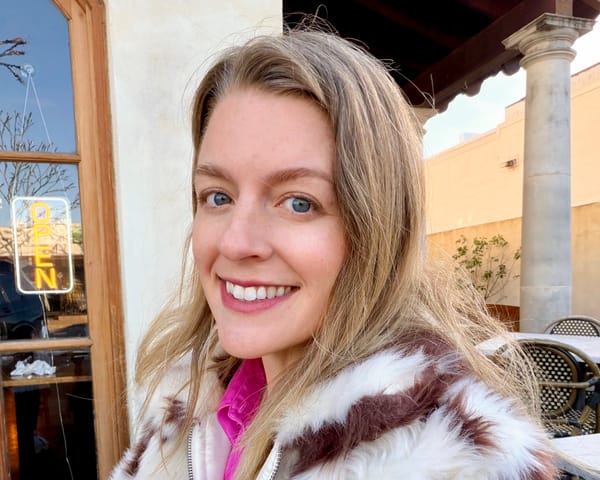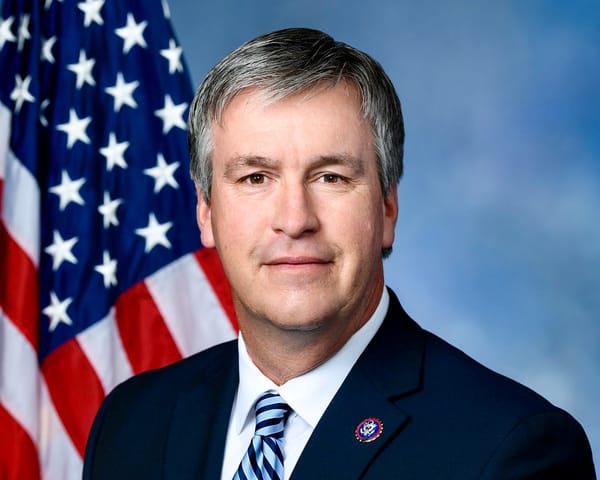America's Abusive Relationship With Its Government
Why We Keep Trying to Fix What Keeps Breaking Us

Guest Opinion by Alicia Boothe Haggermaker
I was scrolling through Facebook when I saw a discussion about 3M’s decision to shut down chemical production after years of lawsuits. Some worried about the 300 jobs being lost. Most commenters, though, said the damage 3M caused far outweighed any temporary economic pain. They were right. But the post made me think of something larger—and harder to admit. Because what we’re watching with corporations like 3M, and with government itself, looks a lot like an abusive relationship.
(3M faced extensive PFAS contamination lawsuits, resulting in a $10.3 billion settlement with U.S. water systems and additional state actions 3M, 2024; ProPublica, 2023; NBC Philadelphia, 2025).
The Pattern We Recognize Everywhere but Home
We’re quick to judge people—especially women—who stay in toxic relationships.
We say, “They should just leave.”We rarely ask what keeps them there.
Abusers don’t control only through violence. They control through dependency—financial, emotional, psychological (Sofia Wellness Clinic, 2022). They make the victim believe leaving would be impossible or foolish. Even when the victim finally sees the truth, walking away means losing security, community, even identity.
That’s us with our government. We’ve been financially bound, emotionally manipulated, and gaslit into believing obedience equals safety. We keep hoping “next time” will be different.
Love-Bombing, Gaslighting, and the Illusion of Reform
Every election cycle is another promise: “I can change.” Every crisis becomes the reason we must stay “for our own good.” When the relationship falters, we’re told the problem is us—our impatience, our mistrust, our failure to believe.
Sound familiar? We’ve been love-bombed with stimulus checks, distracted with partisan drama, and told that questioning authority is dangerous. Meanwhile, the same patterns repeat: debt grows, power centralizes, accountability evaporates (Verywell Health, 2024).
At what point do we stop playing therapist to a system that keeps hurting us?
The Psychology of Captivity
Psychologists call it cognitive dissonance when two conflicting truths live in the same mind. We know the system is corrupt, yet we still hope it can save us. That tension breeds paralysis—just like in any abusive dynamic (PMC, 2022).
There’s also Stockholm syndrome, when hostages develop sympathy for their captors (Simply Psychology, 2023). We praise small acts of competence as proof of reform, even as the overall behavior remains exploitative. We accept crumbs of representation while entire loaves of power are baked behind closed doors.
What Real Escape Looks Like
When survivors leave an abusive partner, they don’t just walk away. They rebuild. They remember who they were before the control—before the gaslighting and dependence. They create new networks of support, new ways of living, new definitions of family and safety.
That’s where we are now as a people. We’re realizing the system doesn’t love us back. It’s been feeding on our labor, our trust, and our loyalty—giving us just enough hope to keep us from walking away.
You don’t fix an abuser. You reclaim your power, rebuild your boundaries, and choose differently (Sage Journals, 2023).
From Fixing Government to Healing Communities
Maybe it’s time to stop asking, “How do we fix the government?” and start asking, “How do we fix ourselves—our communities, our systems of support, and our courage to say no?”
Leaving an abusive system doesn’t mean burning everything down. It means rebuilding from the ground up—locally, relationally, transparently. It means showing up at city-council meetings instead of just scrolling headlines. It means buying from independent farmers and makers instead of subsidized monopolies. It means teaching our kids how systems work so they can spot manipulation before it repeats.
Freedom isn’t granted; it’s practiced—at the dinner table, the co-op, and the town hall. It starts with agency, accountability, and neighbors willing to care for one another more than they fear the absence of control.
If 3M’s shutdown teaches anything, it’s that accountability can outweigh convenience (Time, 2023). When a company finally pays for the harm it caused, we call it justice. When citizens demand the same from government, we call it rebellion. Maybe it’s time those words meant the same thing.
Stop mistaking authority for care. Form local alliances that make federal neglect irrelevant. That’s how we start to heal—together.
Alicia Boothe Haggermaker is a lifelong resident of Huntsville, Alabama, and a dedicated advocate for health freedom. For more than a decade, she has worked to educate the public and policymakers on issues of medical choice and public transparency. In January 2020, she organized a delegation of physicians and health freedom advocates to Montgomery, contributing to the initial draft of legislation that became SB267.
Opinions do not reflect the views and opinions of ALPolitics.com. ALPolitics.com makes no claims nor assumes any responsibility for the information and opinions expressed above.
References
3M. (2024, December 20). Settlement with public water suppliers to address PFAS in drinking water receives final court approval. 3M Investor Relations. https://investors.3m.com/news-events/press-releases/detail/1836/3m-settlement-with-public-water-suppliers-to-address-pfas
Chemical & Engineering News. (2024, March 14). Court approves $10 billion PFAS settlement. https://cen.acs.org/policy/litigation/Court-approves-10-billion-PFAS/102/i11
ProPublica. (2023, October 11). How 3M execs convinced a scientist the “forever chemicals” she found were safe. https://www.propublica.org/article/3m-forever-chemicals-pfas-pfos-inside-story
NBC Philadelphia. (2025, March 5). 3 M could pay up to $450 million in NJ PFAS settlement. https://www.nbcphiladelphia.com/investigators/3m-forever-chemicals-settlement/4184776/
Time Magazine. (2023, June 24). 3M’s historic $10 billion “forever chemical” payout is just the tip of the PFAS iceberg. https://time.com/6289893/3m-forever-chemical-pfas-settlement/
Verywell Health. (2024, January 8). Stockholm syndrome in relationships. https://www.verywellhealth.com/stockholm-syndrome-7973977
Simply Psychology. (2023). Stockholm syndrome. https://www.simplypsychology.org/stockholm-syndrome.html
Sofia Wellness Clinic. (2022). 7 stages of trauma bonding: Why leaving is hard and how to stop it. https://www.sofia.com.sg/7-stages-of-trauma-bonding/
National Library of Medicine (PMC). (2022). Hyper-sensitivity to the perpetrator and the likelihood of returning: Trauma bonding in IPV. https://pmc.ncbi.nlm.nih.gov/articles/PMC9709555/
Sage Journals. (2023). Traumatic bonding in victims of intimate partner violence. https://journals.sagepub.com/doi/10.1177/02654075221106237




